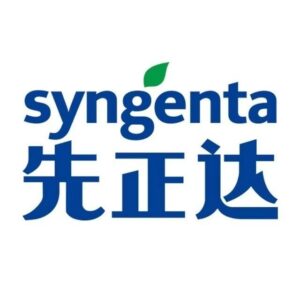Dalian Port, a key hub in Northeast Asia’s logistics network, unveiled the groundbreaking “Durian Sea Express” project, which establishes a direct maritime route for importing fresh durians from Southeast Asia. This innovative logistics channel is a significant milestone for China’s fruit import industry, especially for northern regions where the demand for tropical fruits is high but direct sea transport has historically been difficult.
Key Advantages: Speed, Efficiency, and Cost Reduction
Since its launch, the Durian Sea Express has streamlined shipments with dedicated routes from Thai (Laem Chabang) and Vietnamese (Da Nang and Chu Lai) ports. Weekly sailings ensure stable connectivity and reduce transit times to just six to eight days — a 25% improvement compared to traditional routes. This accelerates delivery and offers a cost-effective alternative to the previous primary modes of land or air transportation for northern China’s durian supply. Northeastern provinces, which account for 30% to 40% of China’s annual durian consumption (approximately 150,000 to 200,000 tons per year), now benefit from faster access to fresh imports. This reduces their reliance on costly air freight and time-consuming land transport, which often results in quality degradation.
Cold Chain and Customs Innovation: Ensuring Quality and Efficiency
To protect the perishable durian fruit, Dalian Port has strengthened its cold chain infrastructure. The Dayao Bay Cold Chain Logistics Park, the largest facility of its kind among China’s coastal ports, has a storage capacity of 400,000 tons and handles over 200,000 TEUs of refrigerated containers each year. This advanced facility maintains precise temperature control throughout the journey, minimizing spoilage risks. Industry estimates suggest that spoilage rates for durians could decrease by up to 20% with this advanced cold chain, saving millions of dollars each year.
Customs clearance has also undergone a transformation. Dalian Customs has implemented streamlined processes, including “two-step declaration” and “collective tax payment,” which cut inspection times by 50%. Fresh durian imports, which previously took several days, now clear customs within one to two days, reducing the risk of perishability and enabling quicker market entry. This efficiency boost is expected to increase the volume of imported durians by 15% to 20% within the first year of operation, aligning with China’s growing demand for high-quality tropical fruits.
Expanding Horizons: Beyond Durians
Although durians are the flagship product, the port aims to expand its offerings. Plans are in place to introduce jackfruit, mangoes, and other tropical fruits, building on the existing Durian Sea Express infrastructure. Once fully operational, the project aims to handle approximately 10,000 TEUs of fresh durians annually (valued at over US$200 million), which would solidify Dalian’s position as a gateway for Southeast Asian produce. This volume represents a potential 30% increase in China’s sea-based durian imports and a 10% to 15% reduction in reliance on air and land routes.
Liaoning Port Group’s Strategic Ambitions
To become a leading international shipping and logistics hub, the group, which operates Dalian Port, has pioneered several specialized routes, including the Southeast Asia Banana Express, the South American Cherry Express, and the Mexico Ocean Route. These routes, coupled with the new Durian Sea Express, comprise a comprehensive network for global fruit imports. Dalian Port currently ranks second in China for banana imports. It handles approximately 50,000 TEUs (worth over US$1 billion) annually, capturing over 30% of the domestic market share. The group’s annual cold chain cargo volume surpasses two million tons, establishing it as a powerhouse in perishable goods logistics.
Market Impact and Future Prospects
Industry experts anticipate that the Durian Sea Express will transform China’s tropical fruit supply chain. Shorter transit times and improved cold chain capabilities are expected to increase import volumes, lower prices, and improve product freshness for consumers. For example, reducing transit time from eight days to six is expected to lower transportation costs by 20% to 25%. This will make high-quality durians more accessible to consumers in northern China. Furthermore, the project aligns with China’s growing demand for imported fruits. According to customs data, durian imports to China have surged by 15% annually over the past five years, reaching a total value of over US$3 billion in 2024.
Beyond immediate commercial gains, the initiative reinforces Dalian’s role as a connectivity hub linking Southeast Asia to Northeast China. As Dalian expands its fruit trading center, meat distribution center, and aquatic products transit center, it solidifies its status as a one-stop logistics destination. Through continuous infrastructure upgrades and digitalization efforts, Dalian is establishing itself as a model for sustainable and efficient cross-border agricultural trade.
Therefore, the Durian Sea Express represents more than just a shipping lane. It symbolizes China’s commitment to modernizing its import logistics, reducing reliance on traditional transport methods, and meeting the evolving demands of its consumers. As the project matures, its ripple effects will likely extend across regional markets, fostering deeper trade ties between Southeast Asia and China’s northern economic corridors. By 2030, experts predict that sea-based durian imports via Dalian could account for up to 50% of China’s total demand, thereby revolutionizing the industry’s supply chain dynamics.









